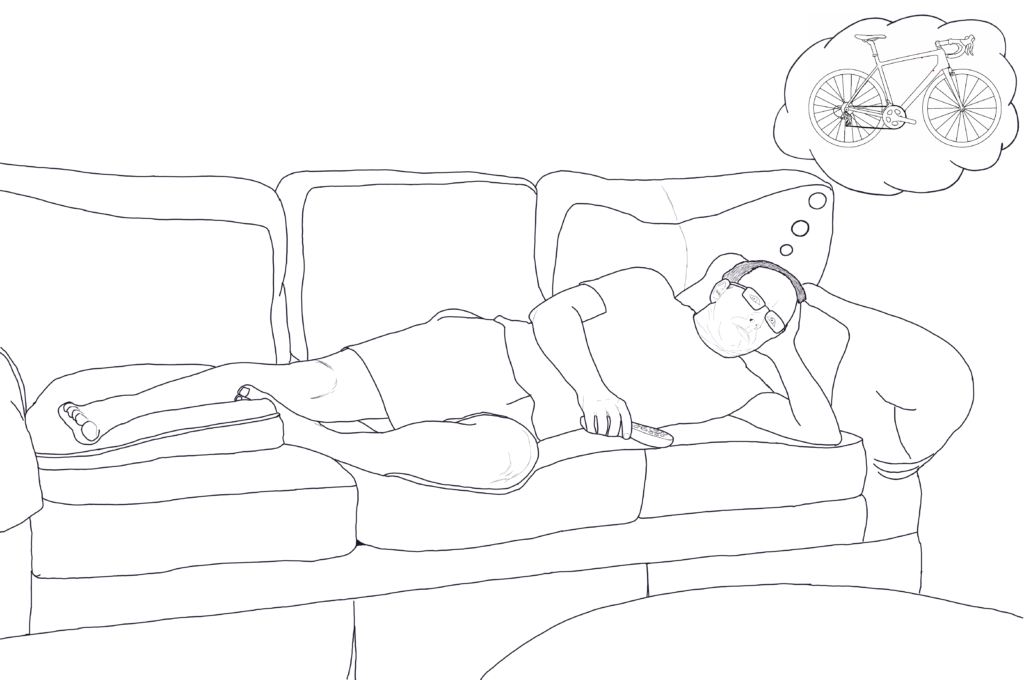The Worst Medical Advice I’ve Ever Received
A few months after my cancer diagnosis, the medical costs were accumulating and the insurance carrier was questioning every treatment, compounding the stress levels.
The insurance carrier decided they’d like to send a nurse expert to my house to evaluate my condition and care. We reviewed my diagnosis and what I was doing to ‘stay healthy’. Her stated goal was to get me the best care possible, but I suspected another motive to minimize insurer costs.
Prior to diagnosis, I was very physically active, riding bicycles around 10 hours a week, for the last 25 years. I often rode to work and back – logging in extra miles, 25-50 miles on some work days, 60+ on the weekends. My diet was poultry and fish, with fresh veggies every day – a pretty good diet except for a love of pizza. Beside genetics, there was really little reason for me to have pancreatic cancer – at age 48.
I talked to the nurse about how difficult it was to ride the bike while on chemotherapy. While still riding every day, two days after chemo I could only manage about 3 miles and others up to 30. The long bike rides helped me release stress while giving me time to process the thoughts running through my head.
And this is where I received the worst medical advice ever:
Wow.
With one recommendation she dismissed my stress relief and suggested I wouldn’t survive long.
Apparently I should sit on the couch and watch TV for the brief remainder of my existence?
I disregarded her advice and suggestion. Six years later, I’m still riding my bicycle and surviving.
Driving treatment decisions on 11 Nov 2017


Thanks for sharing David! I think the worst advice my husband was given, was 3 years ago. He was in the hospital suffering from post-Whipple gastric bleeds. The attending doctor was force discharging because she ‘needed his room’, even though I could clearly see that he was still bleeding. He has a unique ‘tell’ when his hemoglobin drops, his lips turn pale. The doctor told me that it was ‘hospital policy to only do a blood test once every 24 hours’ (untrue), and he also had a blood clot from a pick line used for chemo. She then said that dreaded sentence: There Is nothing WE can do. For good measure, they arrange to have a package of documents dropped off, that I would need to fill out, once he died at home. So, I took him home, used my connections, secured a doctor that would see us in another hospital, organized more transfusions while I worked, with this new doctor, to get another doctor to use a paediatric scope, to get down past the Whipple Reconstruction, where they found 3 more bleeds. They stopped the bleeding, and topped him up with blood. A few days later, he came home! That was 3 years ago. We need to have a way for Caregivers to communicate with clinicians, and actually be heard. Unfortunately, complaints seem to be the only means, and hospitals tend to view them through the lens of litigation potential. Is there a way to create a non-litigious way to communicate with clinicians, at all levels, to help expand their ability to care for PC patients? In medicine, it seems that the primary outcome for quality of care measurement is mortality. If we are fortunate, there is a lot of time between diagnosis and death, and the actual experience the patient and their caregiver has, should be a factor in determining is quality care was provided. The situation I spoke of is but one of the many issues we’ve had, throughout this journey. I am so glad I found you, and the wonderful folks in our Facebook Groups! I had zero information on PC before my husband was diagnosed, and now, with the help of so many, I am confident i can help my husband make the best treatment choices.